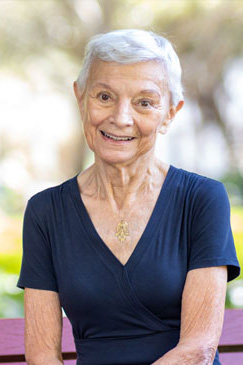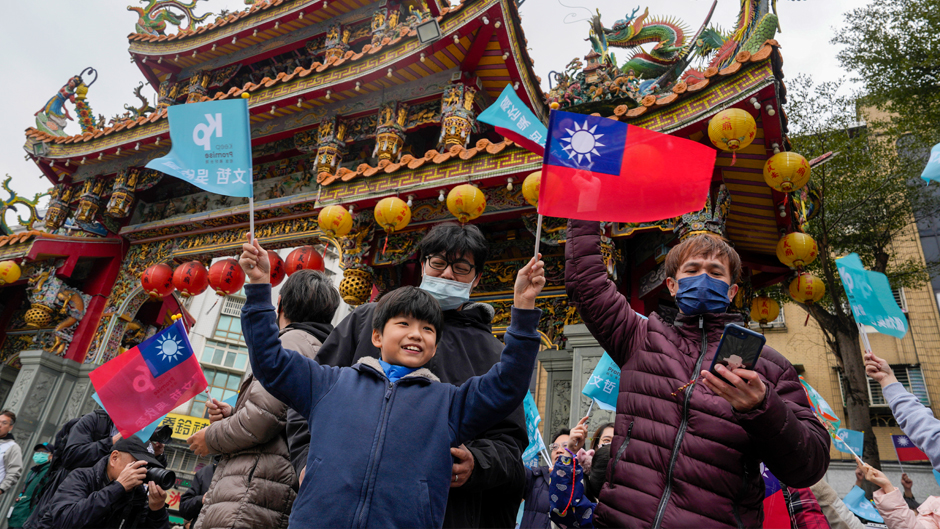Voters in the Republic of China (ROC), the official name for Taiwan, a prosperous island country 100 miles off the coast of mainland China, go to the polls on Jan. 13 to replace term-limited President Tsai Ing-wen and parliamentarians for the country’s unicameral legislature.
Originally four, and now three candidates are vying for the presidency, and the election is expected to be most closely contested since 2000.
June Teufel Dreyer, a professor of political science and China specialist at the University of Miami College of Arts and Sciences, highlighted the dilemma candidates face regarding Taiwan’s relationship with China, the most critical issue to voters.

“The Taiwanese electorate overwhelming rejects ‘unification’—though ‘annexation’ is the more accurate term—with China,” said Dreyer, also a senior fellow of the Foreign Policy Research Institute. “You don’t want to make China mad, yet at the same time you want to promise the electorate that you will not favor annexation by China.
“So how do you do that? It’s like squaring a circle—the candidates talk out of a couple sides of their mouths,” explained Dreyer. She highlighted that one of the candidates has advocated for tightening trade ties with the People’s Republic of China (PRC). “There is no way you can sign a trade pact with China that doesn’t give them the advantage—its economy and population are so large—any pact is going to make Taiwan more dependent on the PRC.”
Dreyer highlighted the import of the elections for U.S. geopolitical interests in the Asian Pacific and its competition and challenges with China.
“If there is unification, it’s going to make China’s military stronger, and that’s not in our best interests. And it scares the heck out of Japan, an ally of the U.S.,” Dreyer added. “If China annexes Taiwan, that will bring the territorial waters of China smack up against Japan—they don’t want this, nor do we.”
Stephen Halsey, associate professor of history in the College of Arts and Sciences, described China’s interests and stance toward Taiwan as a “palimpsest,” an artistic layering technique that produces a weighted effect.

First, he noted that China sees Taiwan as an unfinished item on the constitutional agenda—the last existing vestige of the legacy of 19th- and 20th-century imperialism when it was humiliated at the hands of the European powers, the United States, and Japan.
Another layer of Chinese tension has to do with China’s concern for its national identity, according to Halsey, whose scholarship and teaching focus on the intersection of state power, economic development, and environmental change in late imperial and modern China.
“Chinese communists on the mainland are great foes of the nationalists who fled to Taiwan in 1949 following the civil war of the 1920s, 1930s, and 1940s,” he said. “So, it’s an item of unfinished business, a continuation of the civil war without the actual shooting between the Chinese Communist Party (CCP) and the nationalist party which may embrace democracy and continues to exist on the island of Taiwan.”
He highlighted the impact of this “great bête noire” of the CCP—that the nationalists fled the Chinese mainland in 1949 to Taiwan and “exist there as an alternative vision of China and with the alternative narrative of political legitimacy that is rooted in that ROC.”
These political grievances are heightened by the fact that Taiwan has evolved as a very prosperous functional democracy and is today the global leader in semi-conductor production, Halsey pointed out.
“Taiwan is an exceptionally prosperous society. It’s wealthy, has a capital-, knowledge-, and technology-intensive economy that would be a great asset to the PRC and Communist Party—it’s a valuable piece of real estate,” Halsey said.
What prevents China from exerting its will and invading Taiwan?
“A number of reasons. One is they’re not sure they’re capable of pulling it off,” asserted Dreyer. “It’s a pretty hostile population in Taiwan, and hostile populations have a way of sabotaging. Plus, the Chinese can’t be sure the U.S. won’t intervene.”
Halsey outlined a series of historic pacts and alliances and specifically the Taiwan Relations Act of 1979 that requires the U.S. to maintain the capacity to resist coercive changes to the status quo. He noted the U.S. policy of “strategic ambiguity” serves as the principal mechanism for encouraging restraint on both sides of the Taiwan Strait.
“Strategic ambiguity [essentially what would prompt or provoke a U.S. intervention to defend Taiwan] basically has been the nature of our policy since the Shanghai Communique of 1972 up until very recently,” said Halsey, noting that the Biden administration has been more outspoken in the willingness of using U.S. force to defend Taiwan, while claiming there is no change in that policy.
Dreyer pointed out that Dr. Lai Ching-te, the incumbent Democratic Progressive Party’s vice president and medical doctor, is marginally ahead in the polls, yet noted that twice in the recent past the presidential winner has been decided by fractions of a percentage point. There is no runoff, and the candidate with the most votes wins.
“Dr. Lai has done a good job as vice president and has not said that he will sign trade pacts with the PRC, but on the other hand his party has been in power for eight years, which means it has a track record that the opposition can point to,” said Dreyer, noting that while the economy of Taiwan has been strong, wages have been stagnant, there is a shortage of affordable housing, and many Taiwanese complain that living costs are too expensive.

